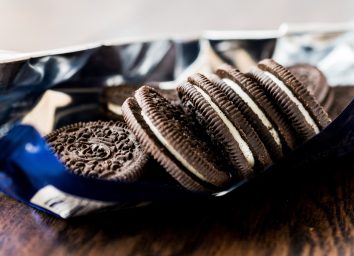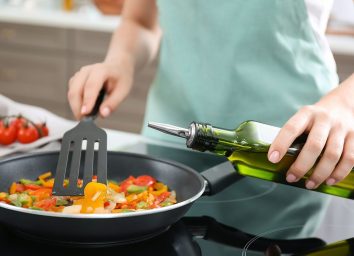17 Kitchen Mistakes That Are Spoiling Your Food Faster
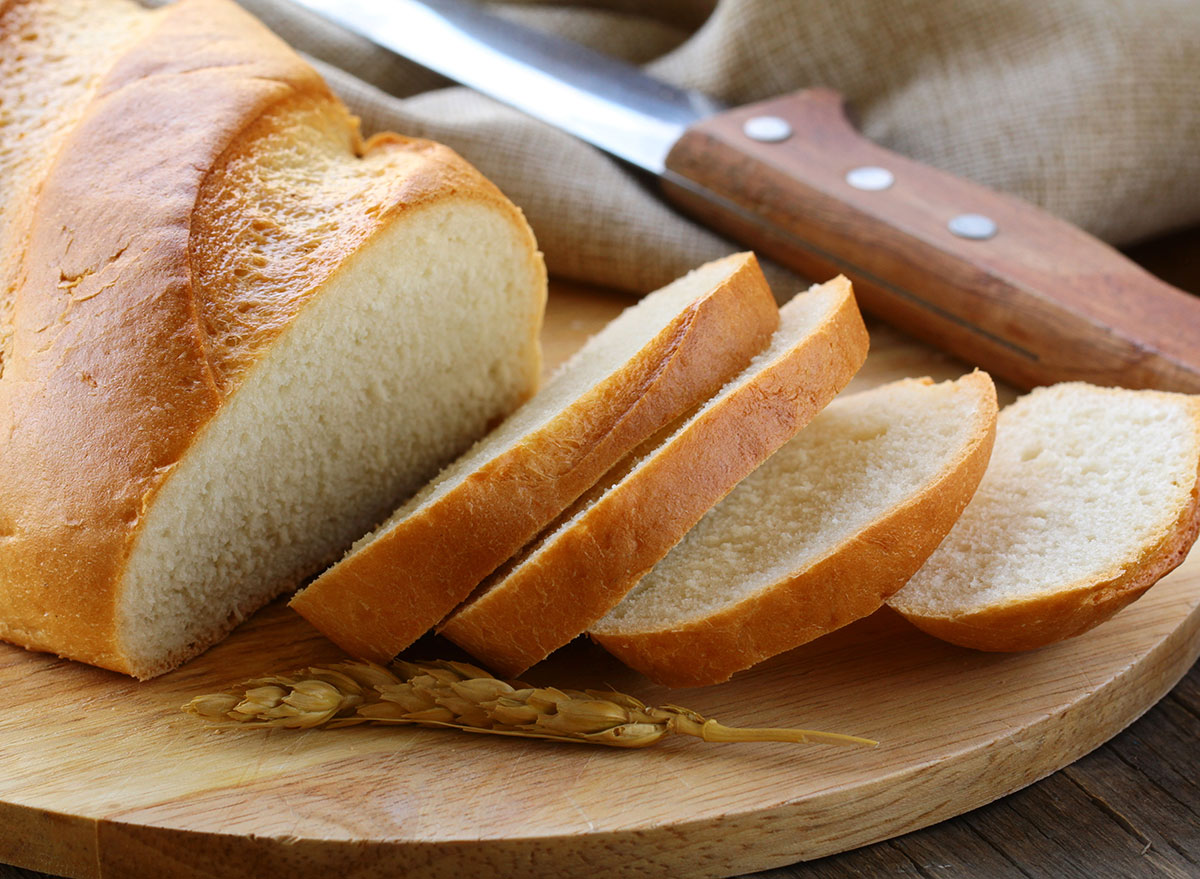
It's a tale as old as time: you spend 10 bucks on a freshly baked loaf of bread, only to wake up the next day and find it too hard to cut through. Storing and handling your food properly does more than keep you healthy, it makes sure you're getting the most out of your grocery budget.
But you don't have to have a food handler's license in order to cook smart and store smarter. These quick tips will leave you feeling like a kitchen pro—and make sure your morning toast is exactly as it should be.
Don't forget to sign up for our newsletter to get the latest restaurant news delivered straight to your inbox.
You don't know how to store guac
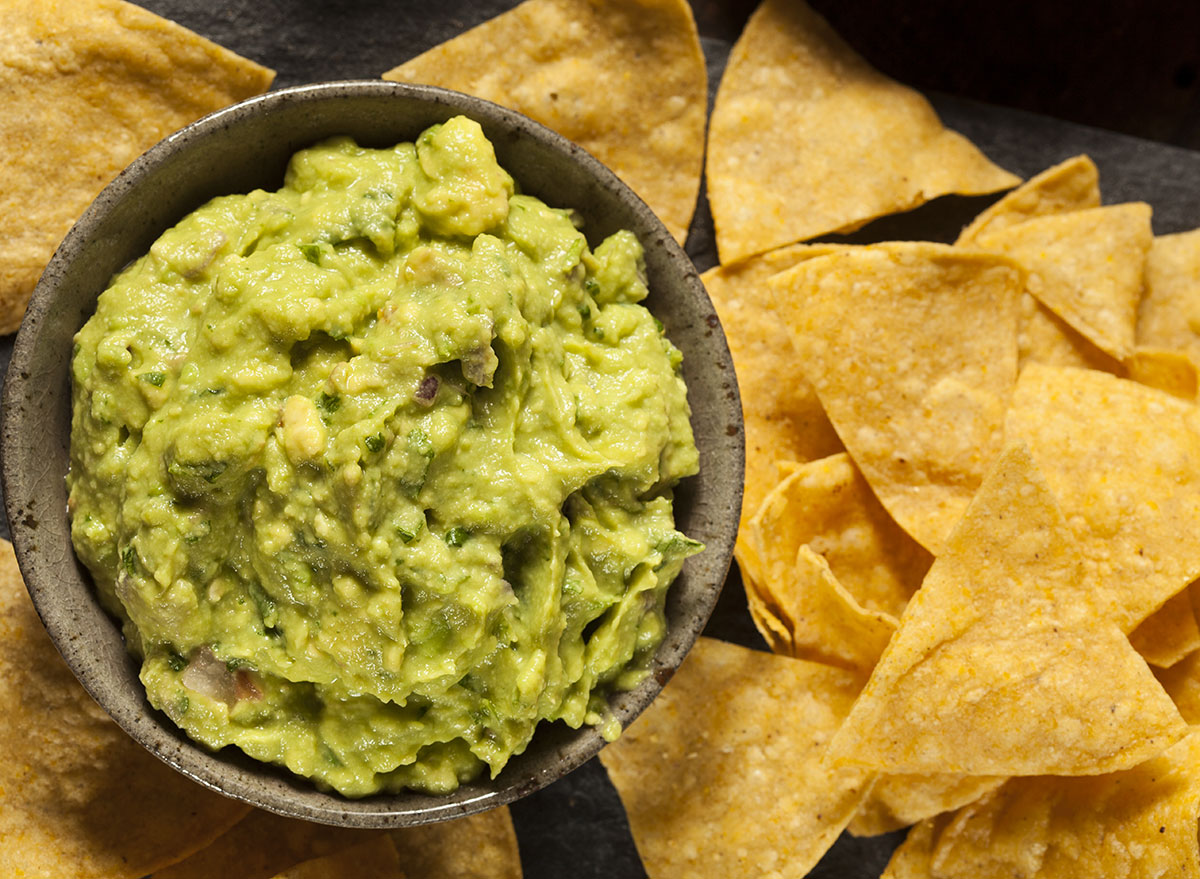
To help stop guac from turning brown, store it with a thin layer of water on top. Cover it all with a piece of plastic wrap, and tomorrow's tacos will be good to go. Try one of these 20 Best Guacamole Recipes for the Avocado Obsessed.
You're wasting fresh herbs
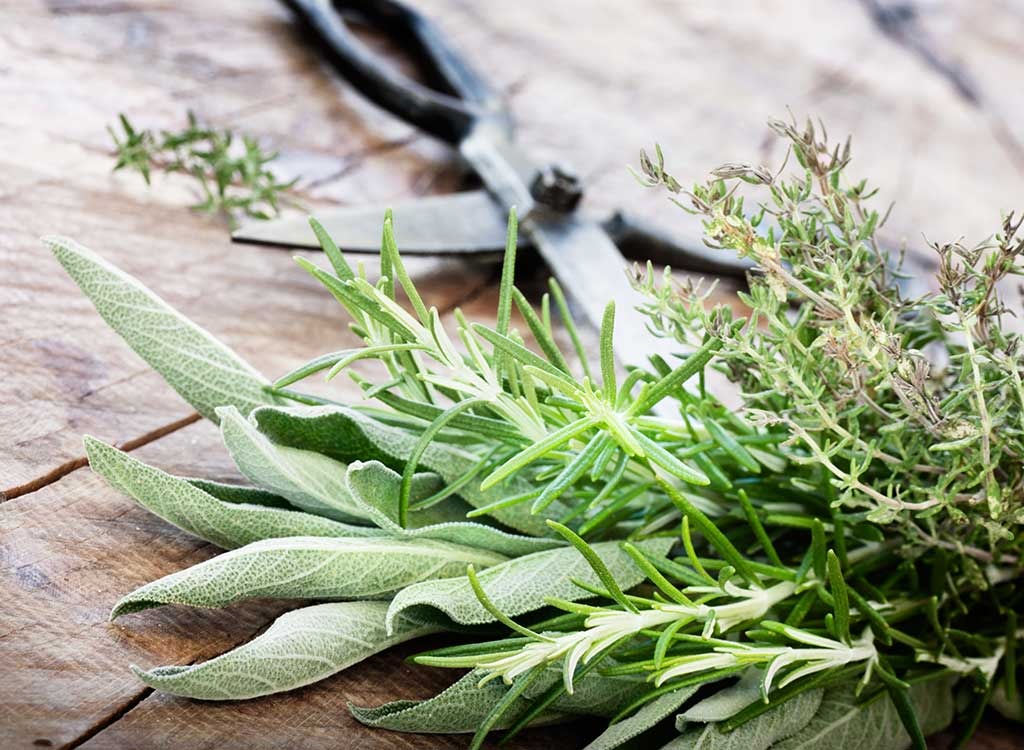
Delicate herbs like basil or cilantro should be wrapped in a damp paper towel and stored in a plastic bag in the refrigerator. Woody herbs like rosemary or thyme should be fine without this special treatment. Get our more tips on the Single Best Way To Store Fresh Herbs.
Your apple slices are browning
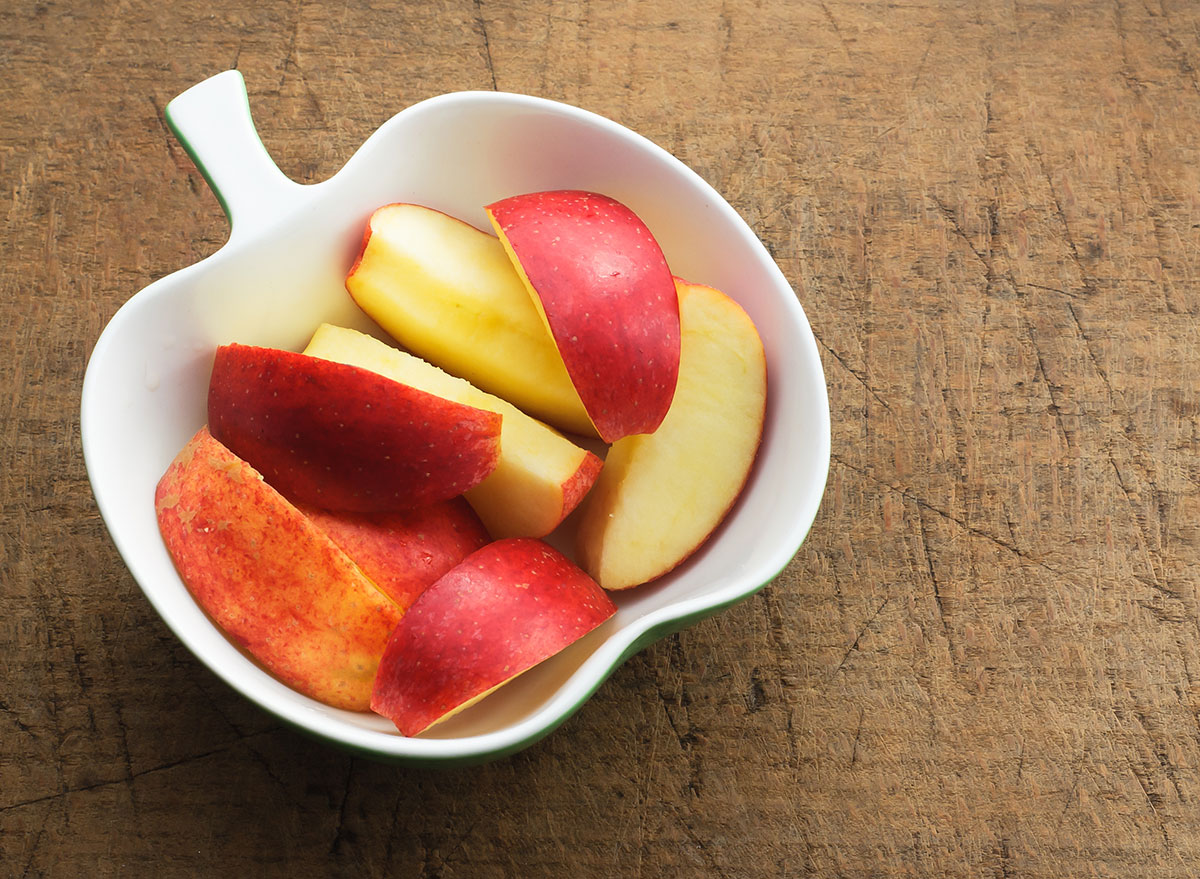
Stop apple slices from turning brown by dissolving a touch of salt in a bowl of water that you then add the apples to (just remember to rinse before eating). Honey works too, for sweeter purposes.
You're refrigerating your bread
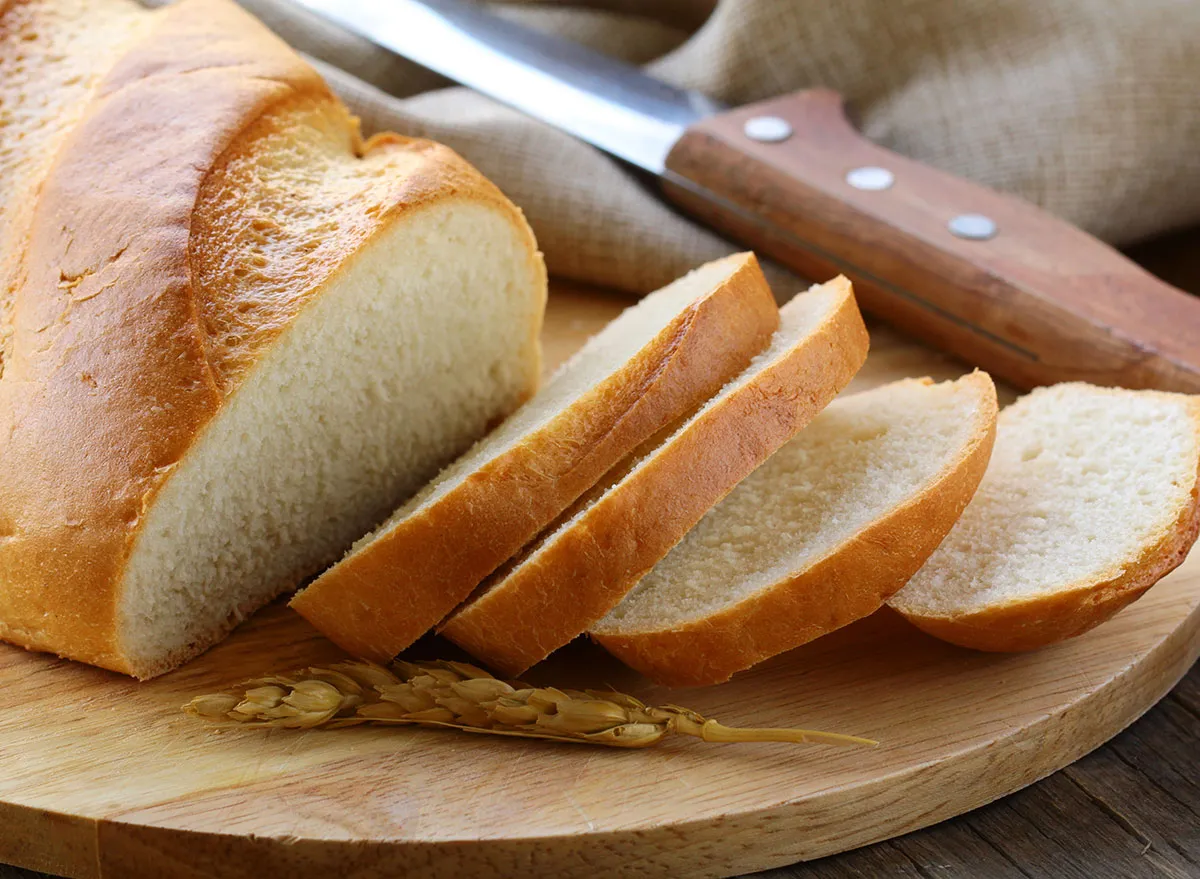
It's perfectly fine (and preferable, in fact) to keep your bread at room temperature instead of in the refrigerator. If it's a loaf of bakery bread, wrap it and keep it cut side down on the counter to minimize exposure to air. And if you're looking to bake your own loaf, Here's How to Make The Easiest Basic Sandwich Bread.
Your coffee is losing flavor

You may have heard that coffee beans are best if kept in the freezer, but they're better off inside the pantry in an opaque container to stop light from getting in. For best results, buy small batches of beans at a time.
You're cooking rice wrong
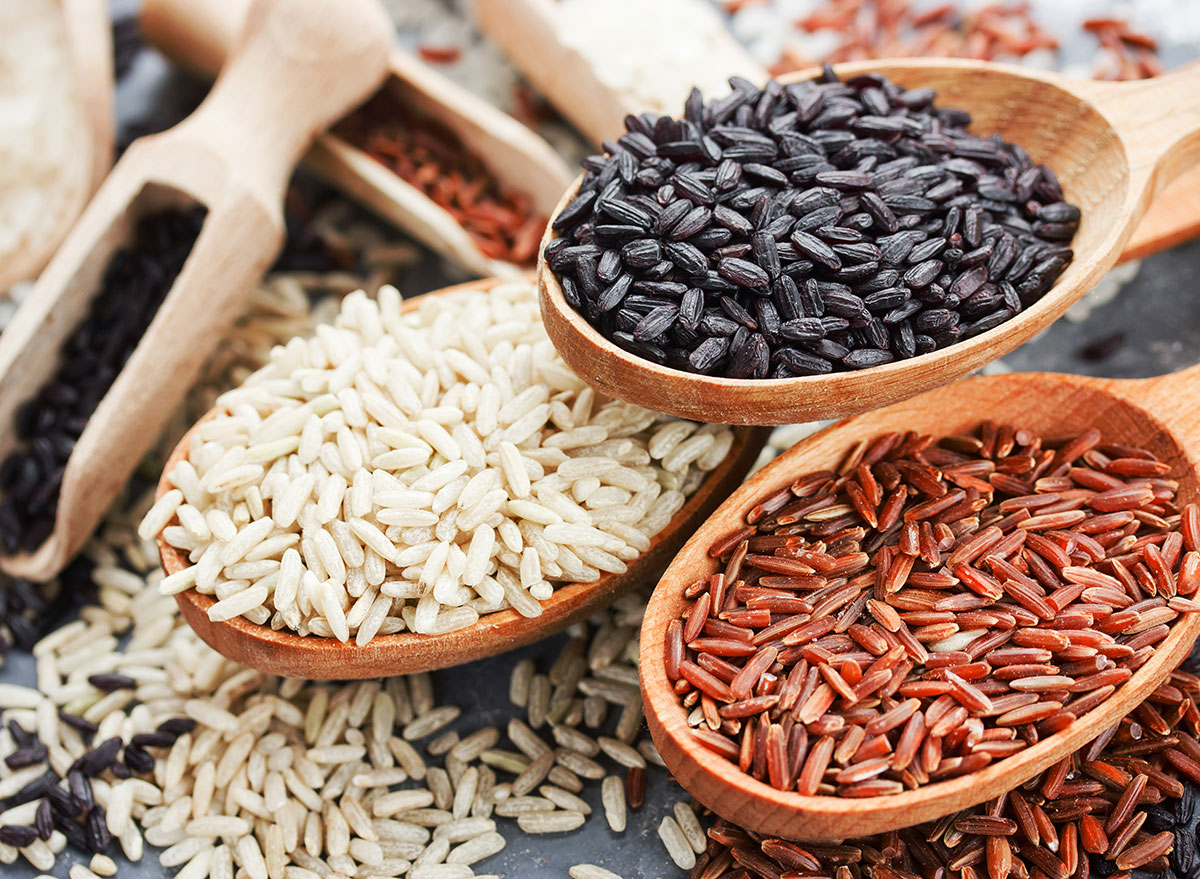
This simple grain may seem innocuous, but uncooked rice has a bacteria that can make you quite sick. It's important to cook and reheat it all the way through, and to make sure it doesn't sit out for more than an hour. We took the guesswork out of rice and Cooked It 3 Different Ways—This Was the Easiest.
Your strawberries are wilting

Once you score a carton of this sweet summer fruit, store them in a single layer on top of a dry towel in the refrigerator, with a damp towel on top. It might sound like a lot of effort, but these delicate gems will dry out if not stored properly.
You're killing the flavor in your tomatoes
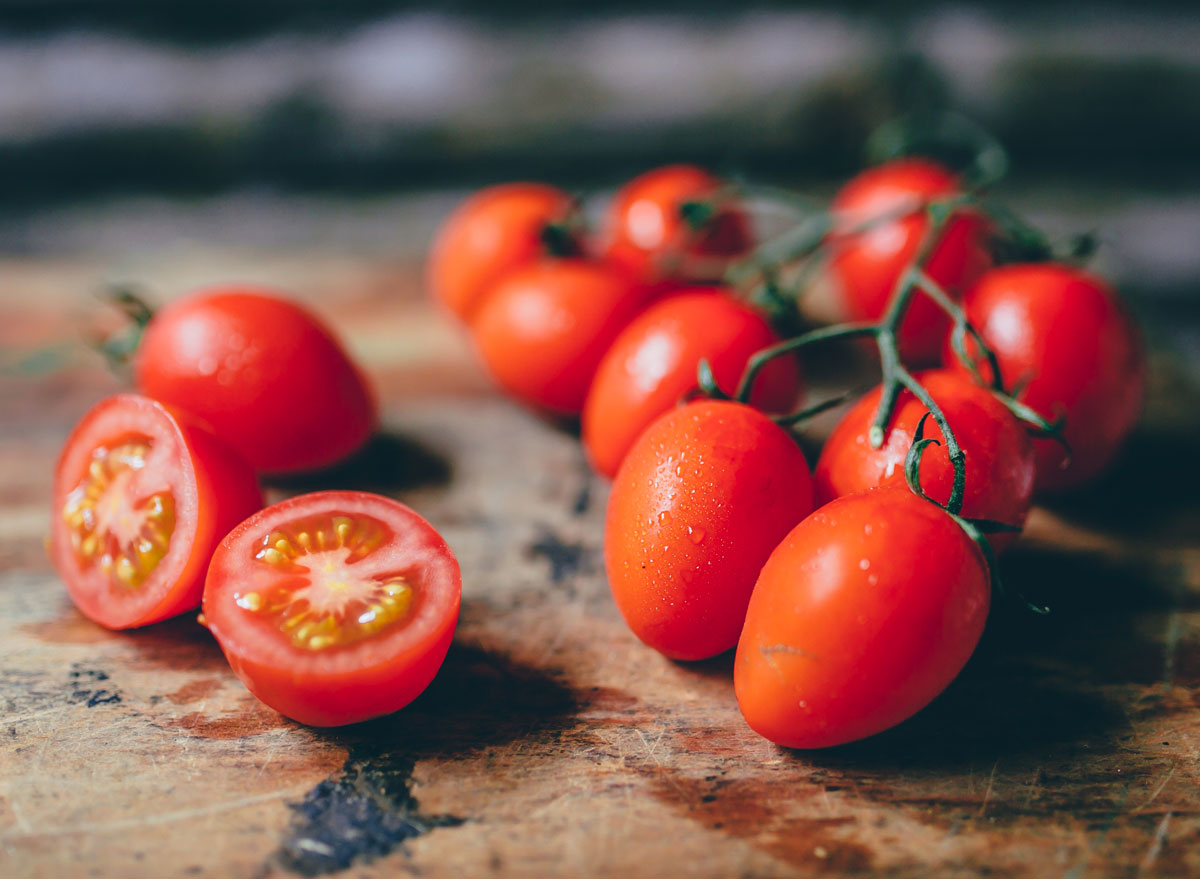
Resist the temptation to put them in the refrigerator. They become less flavorful (and thus less delicious) if you do. The only exception should be if they're practically overripe and ready to eat, as refrigerated conditions will halt the ripening process.
You're storing your spices in the wrong spot
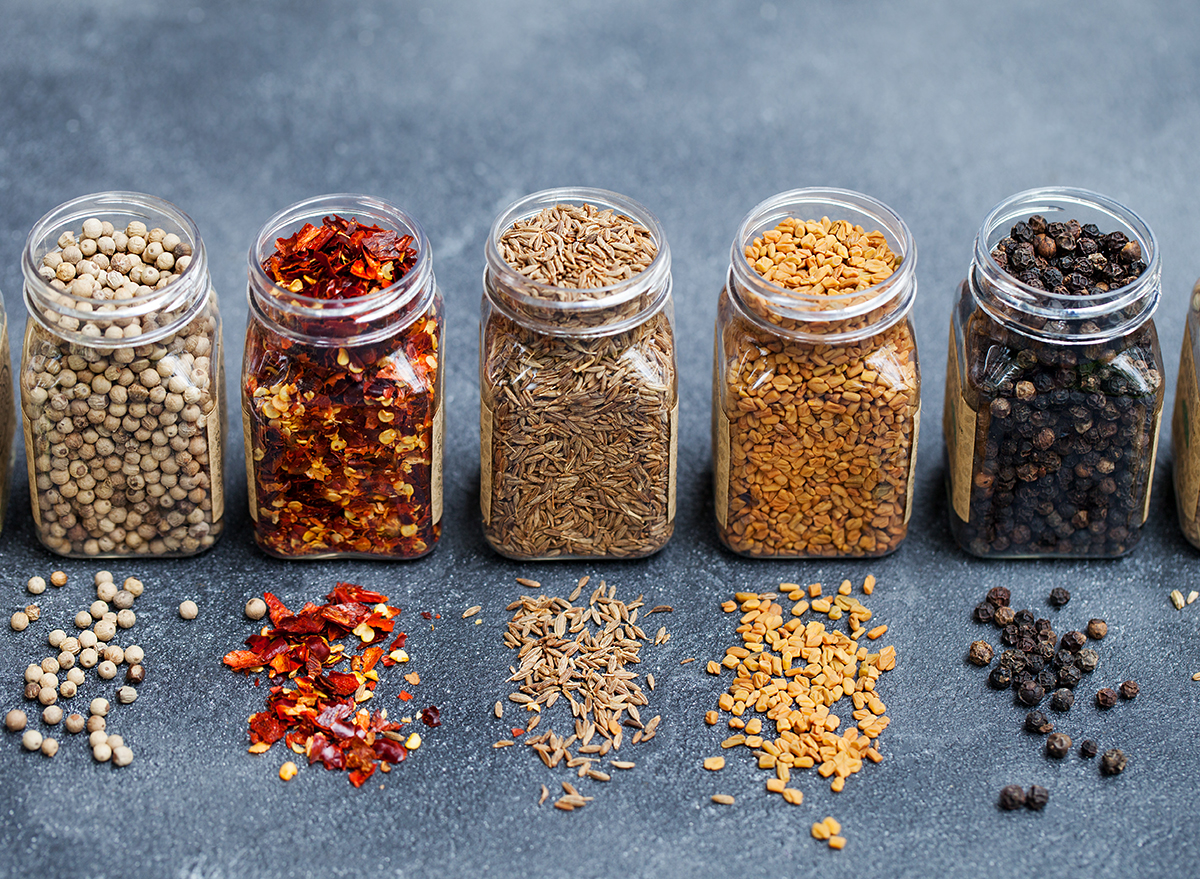
In order to keep your spices in top shape, limit exposure to heat, oxygen, and light. That cool spinning spice rack that sits next to your oven under the window? Probably not a great idea.
Your eggs are in the wrong part of the fridge
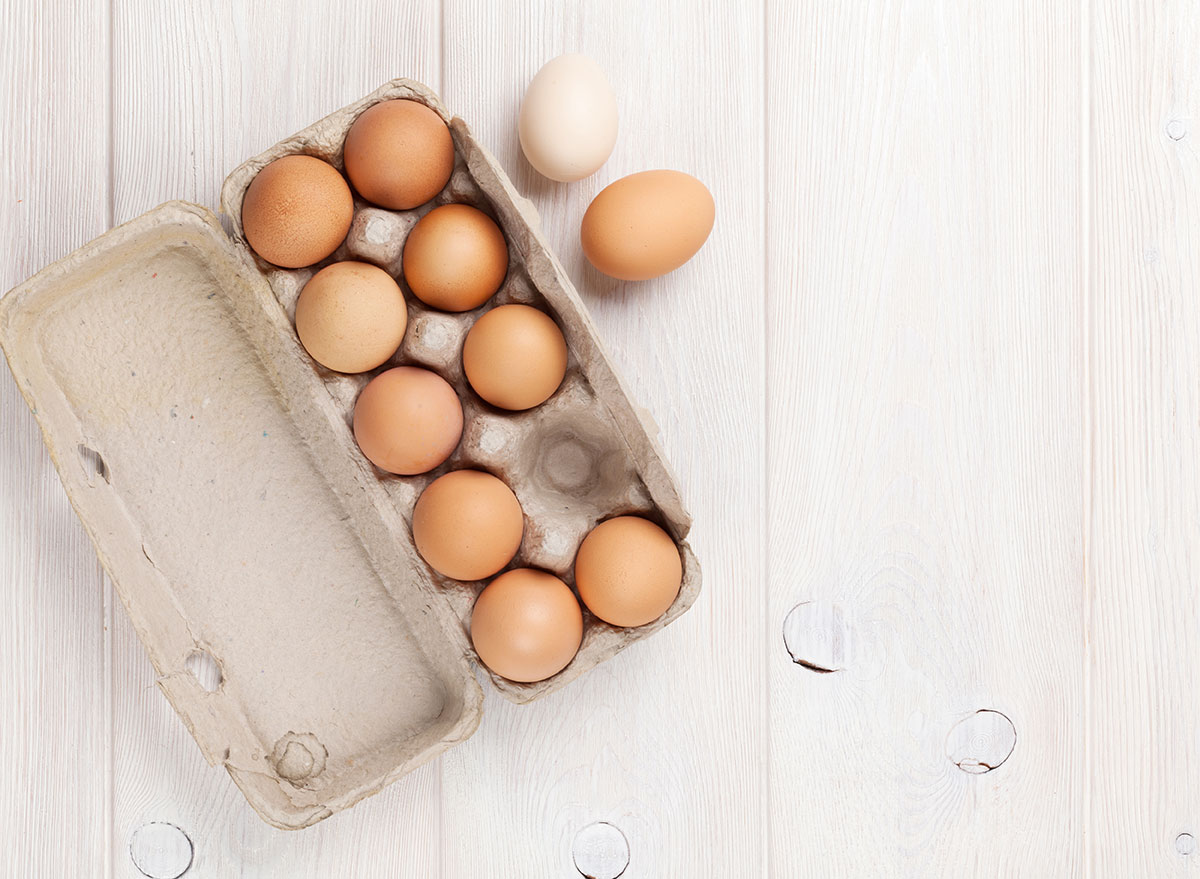
Even if your refrigerator has a convenient egg-shaped holder inside the door, keep your eggs in a deeper compartment. The door is the warmest place, and susceptible to temperature fluctuations as you open and close the door deciding what to choose for a snack. Here's How To Make the Jammiest Soft-Boiled Eggs.
You're wasting leftover yeast

If you open a package of active dry yeast, put any leftovers in the refrigerator or freezer. If left open at room temperature, it'll lose its superpower to make fluffy waffles, rolls, and more.
Your garlic is aging faster

It's easy to think of the refrigerator as a magic box that stops food from aging, but with garlic, it just speeds up the process. They'll sprout earlier than they should, and can even grow mold. Your best bet is to keep them in a bowl or basket on the counter. Here's The Best Way to Chop Garlic, According to a Chef.
You're washing your produce wrong
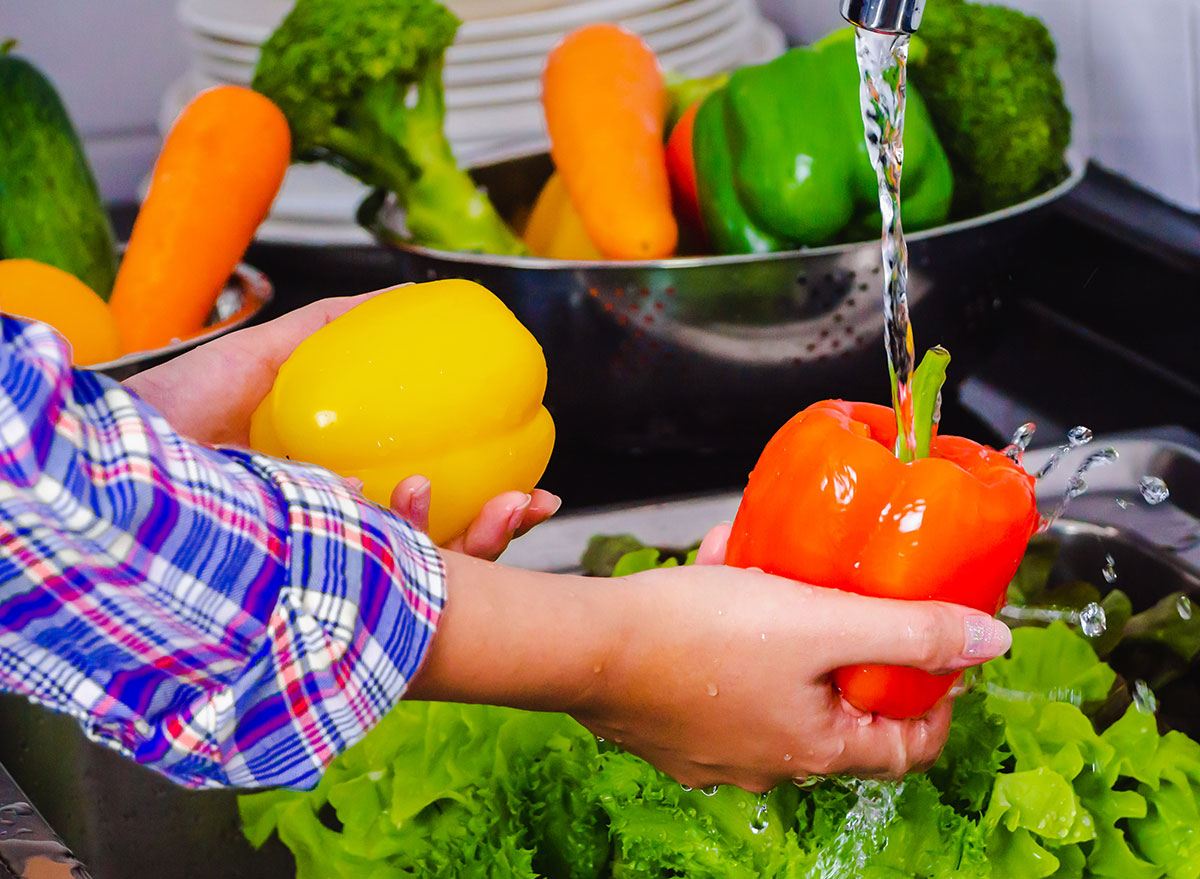
Rather than wash items from your grocery haul before you store them in the refrigerator, only wash them once you're ready to use them. Otherwise, the extra moisture could lead to mold growth.
You're freezing the Wrong Produce
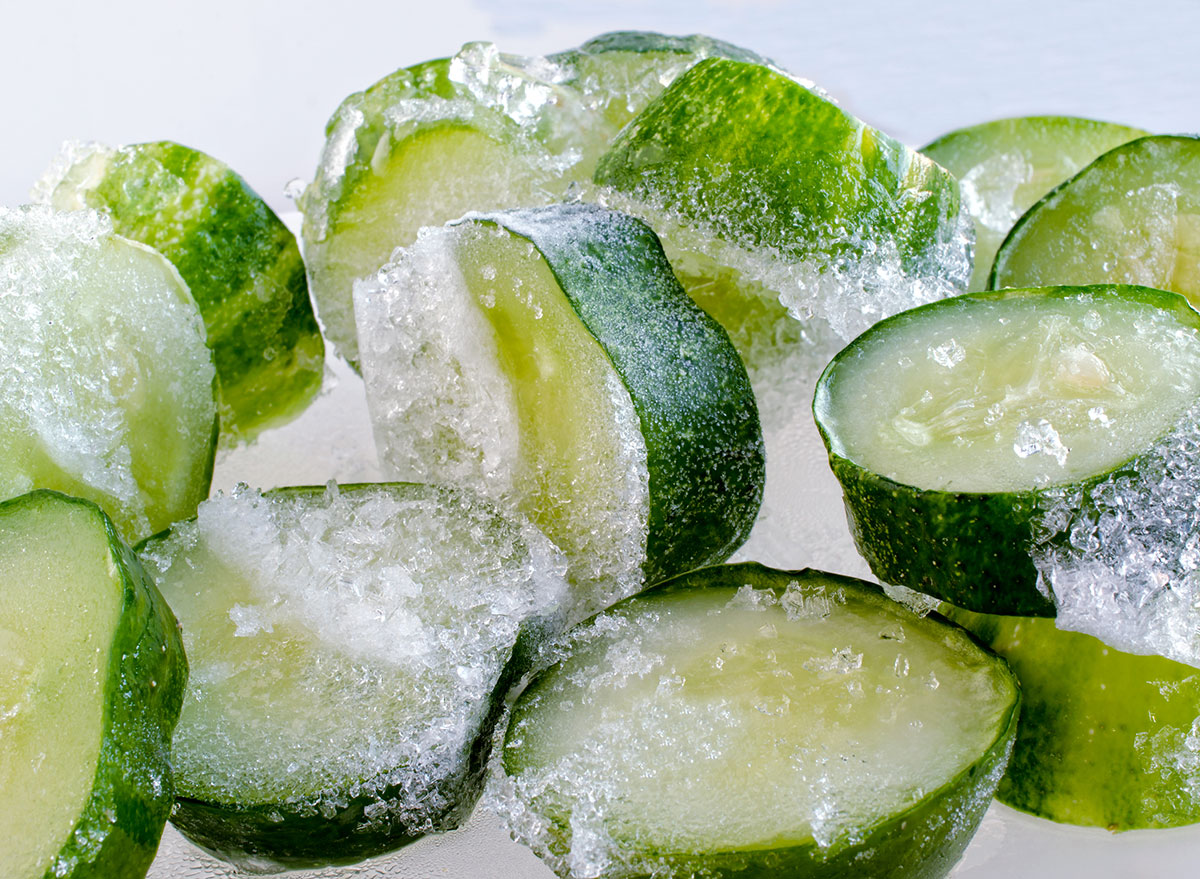
While some fresh fruits and vegetables like bananas and broccoli fare perfectly well in the freezer, ones with a high water content (such as lettuce, celery, and cucumber) should be kept out or else they're likely to turn into mush. Make sure to avoid these 10 Biggest Freezer Mistakes You're Making.
You're freezing leftovers too late
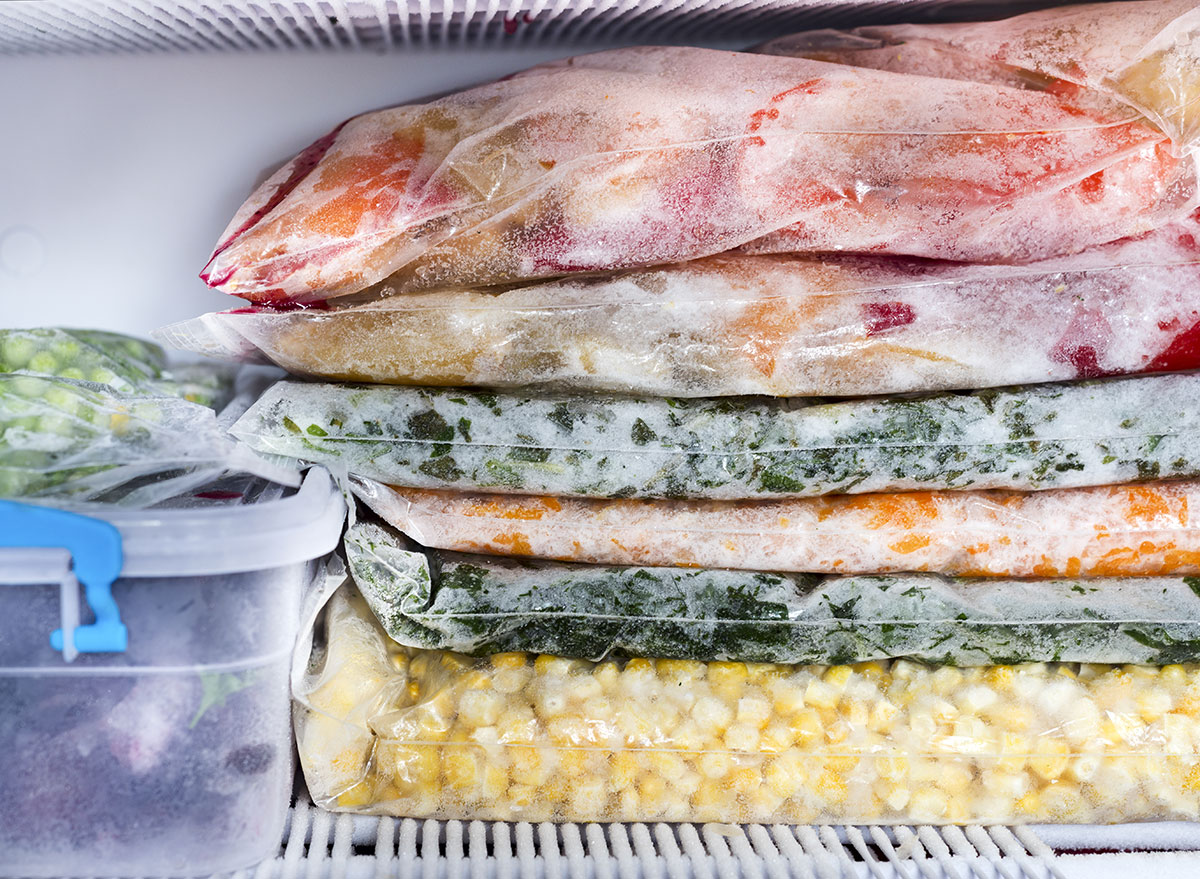
The freezer can be your best friend, as long as you put food in there before it goes bad. Any bacteria that's present on those leftover pork ribs before you swap them over to the freezer will be there waiting once you bring them back to room temperature.
You're freezing leftovers for too long
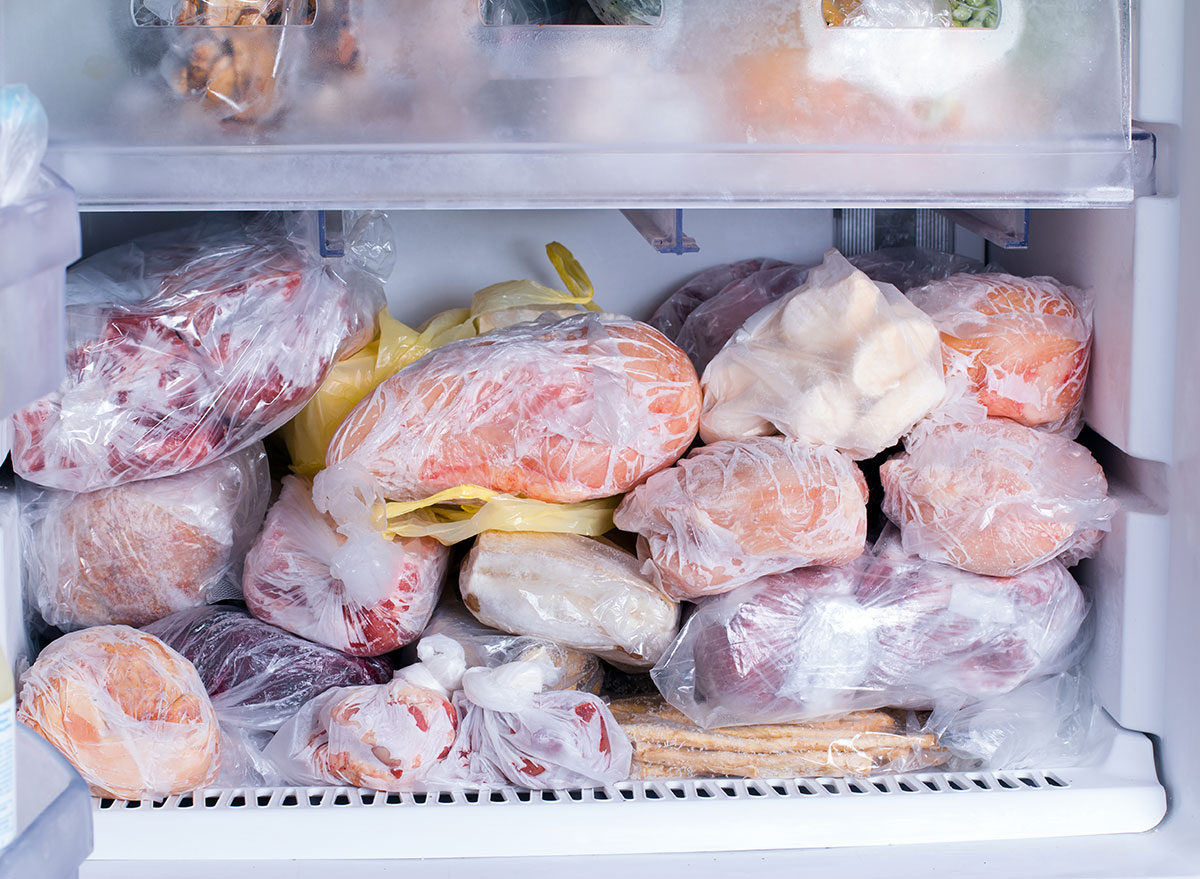
Freezers aren't like that drawer in your closet where you hide old clothes instead of deciding what to do with them, only to never be seen again. There are specific guidelines on how long to keep items frozen: for example, cooked meat maxes out at two months.
You're thawing your chicken imporperly
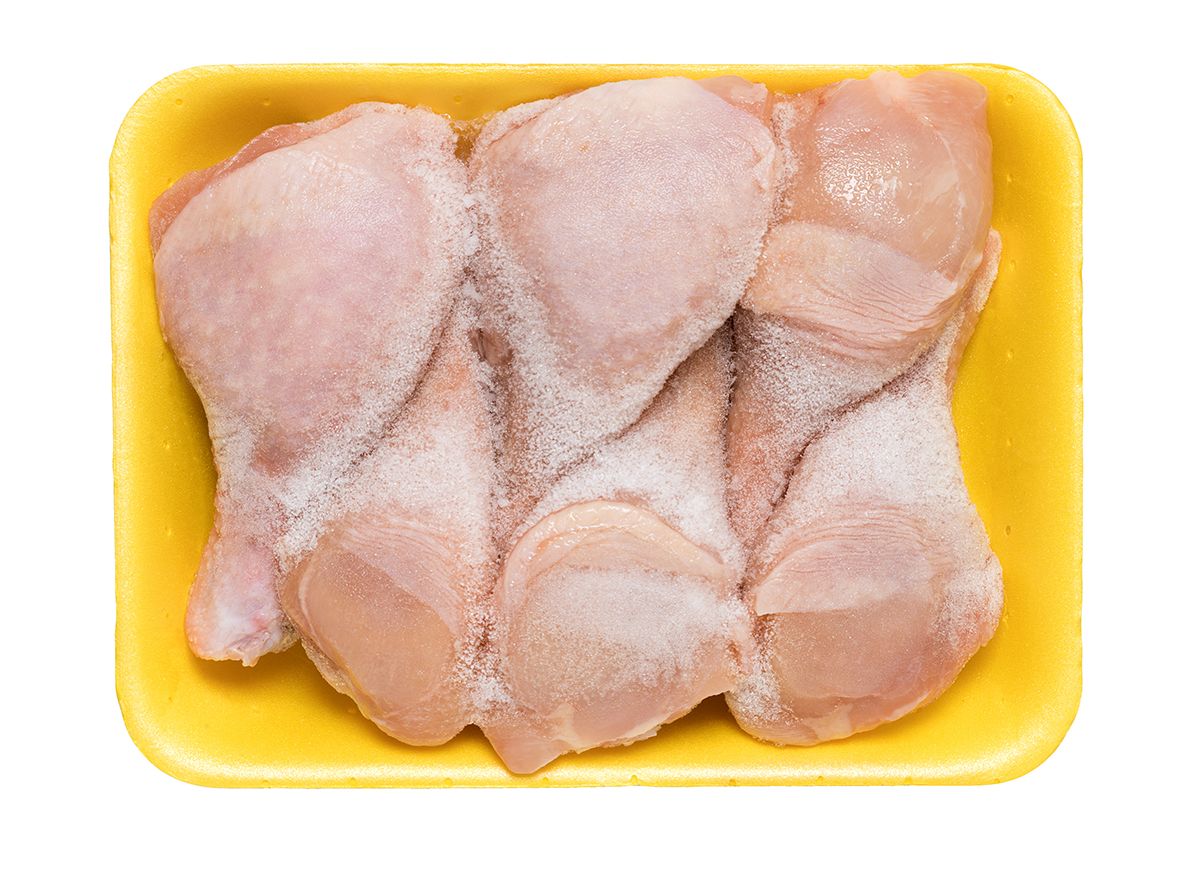
Avoid defrosting a chicken by letting it sit out at room temp or dunking it in a hot water bath. It depends on the cut, but you're better off letting it come to temperature in the refrigerator or in a monitored bowl of warm water. If you don't follow protocol, that chicken could turn into dinner for bacteria instead of dinner for your family.
